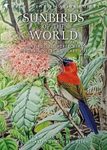![Die Schafstelze [The Yellow / Blue-headed Wagtail] Die Schafstelze [The Yellow / Blue-headed Wagtail]]()
Click to have a closer look
About this book
Customer reviews
Related titles
About this book
Language: German
The yellow wagtail is a resident of the open country, and has developed a vast distribution area over almost the entire Palaearctic. Even the old master of German ornithology, Naumann, described the colourful golden yellow-bellied males in the breeding plumage as "a beautiful little bird". At that time it was a numerous inhabitant of the vast lowlands of streams and rivers. By predominantly meliorative interventions its habitats were changed or destroyed. The yellow wagtail has colonized the cultivated landscape with its adaptive behavior. Nesting in arable areas can be traced back to over 300 years. In the breeding period, their concentrations at the roosting places in migratory and winter quarters as well as a close connection to herds of grazing livestock represent an outstanding phenomenon in this social species. Ornithologists who wanted to get an overview of the yellow wagtail had to resort to Smith. This publication was published many years ago in English and deals with the subspecies Motacilla flava flavissima (English Yellow Wagtail). The present monograph predominantly deals with the nominate form M. f. flava (European yellow wagtail). The authors have investigated, amongst others, its reproductive biology, population ecology and the distribution in the lower Odertal lowlands. Special attention was paid to fieldwork in connection with the collection of biometric and moulting data. Characteristic of the yellow wagtail is the variety of its forms. This is expressed above all in the different head colouration of the males, in the variability within populations and a striking shift towards mutation formation and hybridization. On a large scale, the research that has begun on the breeding grounds should be continued, whereby ecological and ethological issues are increasingly important.
Summary in German:
Die Schafstelze ist ein Bewohner des Offenlandes, der sich ein riesiges Verbreitungsgebiet über fast die gesamte Paläarktis erschlossen hat. Schon der Altmeister der deutschen Ornithologie, Naumann, bezeichnete das farbenprächtige, unterseits goldgelbe Männchen im Brutkleid als "ein gar schönes Vögelchen". Zu jener Zeit war sie ein zahlreicher Bewohner der weiträumigen Niederungsgebiete der Ströme und Flüsse. Durch vorwiegend meliorative Eingriffe wurden die Lebensräume verändert bzw. zerstört. Die Kulturlandschaft hat die Schafstelze durch ihr Adaptionsverhalten besiedelt. Ein Nisten in Ackerbaugebieten läßt sich auf über 300 Jahre zurückverfolgen. In der Nachbrutzeit stellen bei dieser sozialen Vogelart ihre Konzentrationen an den Schlafplätzen in den Durchzugs- und Winterquartieren sowie eine enge Bindung an die weidenden Viehherden ein herausragendes Phänomen dar. Ornithologen, die sich einen Überblick über die Schafstelze verschaffen wollten, mußten bisher zum Smith greifen. Diese Publikation erschien vor vielen Jahren in englischer Sprache und behandelt die Subspecies Motacilla flava flavissima (Englische Schafstelze). Mit der vorliegenden Monographie wird vorwiegend die Nominatform M. f. flava (Europäische Schafstelze) bearbeitet. Die Autoren haben Untersuchungen zur Fortpflanzungsbiologie, Populationsökologie u. a. Teilbereiche in der unteren Odertal-Niederung durchgeführt. Dem Schlafplatzgeschehen in Verbindung mit der Sammlung von biometrischen und Mauserdaten wurde bei der Feldarbeit besondere Aufmerksamkeit geschenkt. Kennzeichnend für die Schafstelze ist die Mannigfaltigkeit ihrer Formen. Das drückt sich vor allem in der unterschiedlichen Kopffärbung der Männchen, in der Variabilität innerhalb von Populationen sowie eine auffallende Hinwendung zur Mutationsbildung und Hybridisation aus. In großer Breite sind die begonnenen Forschungen an den Brutplätzen fortzusetzen, wobei zunehmend ökologische und ethologische Fragestellungen von Bedeutung sind.
Customer Reviews





![Die Schafstelze [The Yellow / Blue-headed Wagtail] Die Schafstelze [The Yellow / Blue-headed Wagtail]](http://mediacdn.nhbs.com/jackets/jackets_resizer_xlarge/15/15615.jpg?height=620)
![Die Schafstelze [The Yellow / Blue-headed Wagtail]](http://mediacdn.nhbs.com/jackets/jackets_resizer/15/15615.jpg)




![Die Seeadler [The White-Tailed Eagle]](http://mediacdn.nhbs.com/jackets/jackets_resizer_medium/52/52805.jpg?height=150&width=106)
![Die Teichralle [The Common Moorhen]](http://mediacdn.nhbs.com/jackets/jackets_resizer_medium/52/52926.jpg?height=150&width=105)
![Die Wasseramsel [The White-Throated Dipper]](http://mediacdn.nhbs.com/jackets/jackets_resizer_medium/24/247214.jpg?height=150&width=107)
![Der Wespenbussard [The Honey Buzzard]](http://mediacdn.nhbs.com/jackets/jackets_resizer_medium/25/25905.jpg?height=150&width=103)
![Die Schafstelze [The Yellow / Blue-headed Wagtail]](http://mediacdn.nhbs.com/jackets/jackets_resizer_medium/15/15615.jpg?height=150&width=106)
![Der Bartkauz [The Great Grey Owl]](http://mediacdn.nhbs.com/jackets/jackets_resizer_medium/52/52807.jpg?height=150&width=106)
![Die Pfefferfresser [The Toucans]](http://mediacdn.nhbs.com/jackets/jackets_resizer_medium/17/172792.jpg?height=150&width=107)
![Die Ausgestorben Vögel der Welt [The Extinct Birds of the World]](http://mediacdn.nhbs.com/jackets/jackets_resizer_medium/52/52960.jpg?height=150&width=104)
![Die Haselhühner [The Hazel Grouse]](http://mediacdn.nhbs.com/jackets/jackets_resizer_medium/26/26139.jpg?height=150&width=106)
![Die Blaumeise [The Blue Tit]](http://mediacdn.nhbs.com/jackets/jackets_resizer_medium/13/130204.jpg?height=150&width=101)
![Lärmvögel, Turakos und Pisangfresser [Go-Away-Birds, Turacos and Musophaga]](http://mediacdn.nhbs.com/jackets/jackets_resizer_medium/17/172673.jpg?height=150&width=104)
![Die Grosse Dommel [The Eurasian Bittern]](http://mediacdn.nhbs.com/jackets/jackets_resizer_medium/17/172871.jpg?height=150&width=107)






![Ageing & Sexing of Migratory East Asian Passerines [English / Chinese]](http://mediacdn.nhbs.com/jackets/jackets_resizer_medium/25/250760.jpg?height=150&width=115)





![Vogelfang und Vogelberingung, Teil 2: Fang mit grossen Reusen, Fangkäfigen, Stellnetzen und Decknetzen [Bird Trapping and Bird Ringing, Part 2: Catching with Large Traps, Cages, Gill Nets and Deck Nets]](http://mediacdn.nhbs.com/jackets/jackets_resizer_medium/60/60440.jpg?height=150&width=106)

![The Eurasian Hobby [Falco subbuteo]](http://mediacdn.nhbs.com/jackets/jackets_resizer_medium/20/207708.jpg?height=150&width=105)

![Der Wanderfalk [The Peregrine Falcon]](http://mediacdn.nhbs.com/jackets/jackets_resizer_medium/17/172869.jpg?height=150&width=105)
![Vampirfledermäuse [Vampire Bats]](http://mediacdn.nhbs.com/jackets/jackets_resizer_medium/60/60498.jpg?height=150&width=106)
![Die Hundertfüßer [The Centipedes]](http://mediacdn.nhbs.com/jackets/jackets_resizer_medium/17/179962.jpg?height=150&width=105)



![Der Beutelwolf [The Tasmanian Tiger]](http://mediacdn.nhbs.com/jackets/jackets_resizer_medium/77/77224.jpg?height=150&width=106)